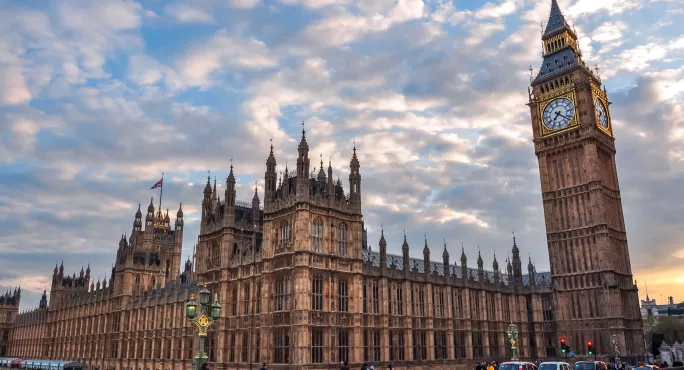The key battlegrounds for Labour’s new education team

Every teacher eventually faces the problem of writing a report about a child they barely know: “Jamie is a very… *peeks at photograph hopelessly*... solid boy. Does his work, very quiet, could contribute more!”
Of course, a lack of confidence or developed personality is hardly unusual among children.
But it’s a problem when the same description is true of the Labour Party’s last shadow education secretary, Kate Green, whose quiet opposition to the Conservatives was as effective as a ripped facemask.
Thankfully, last week, the Labour Party finally changed their education team. Out went Green and in strode Bridget Phillipson.
The school’s minister also transmogrified: switching Peter Kyle (off to defence), for Stephen Morgan, an MP from Portsmouth, who has been in the Commons less time than Year 11s have been in secondary school.
Why it matters
Does the change matter for teachers? Fingers crossed, yes.
Strong opposition ministers do two valuable things. One, they can throw brickbats when the government are hopeless.
During the pandemic, teachers have been desperate for someone - anyone - in Labour to be on their side and give Gavin Williamson (now Nadhim Zahawi) a full-throttle piece of their mind.
And two, opposition ministers also create policies.
Both David Blunkett and Michael Gove had several years as shadow education secretaries and used the time to plan out what they wanted to achieve when in power.
If Labour gets into power at the next election (admittedly, a big “if”), then it would be Phillipson and Morgan’s ideas that turn into our reality - so it’s worth paying attention.
What do we know about the new Labour crew?
On paper, Phillipson is a standard “career politician”. Her mum is involved in politics. She attended Oxford. After uni, she worked for her mum’s charity and then, at the tender age of 27, she became an MP. Mega-yawn.
But Phillipson is edgier than her story suggests. For a start, she’s from Washington in Sunderland, a traditional coal-mining town, where two-thirds of local men worked down the pits at one point in its history.
Her mother’s political activism was in the Labour Party during the 1980s - a punchy time in campaign history. As a kid, Phillipson regularly attended meetings as her mother struggled to source childcare.
Meanwhile, Oxford only beckoned after attending her local comprehensive state school, St Robert of Newminster. And her charity work? It was for Wearside Women in Need, a domestic abuse charity, running helplines and refuges for women facing violence at home. Few jobs give such a stark insight into the realities of safeguarding.
Meanwhile, Stephen Morgan has a similar trajectory.
Comp-educated at the Priory School in Portsmouth (now part of Bohunt Education Trust), he’s been involved in plenty of campaigning, plus has two degrees in politics and a range of roles in charities before becoming an MP in 2017.
He’s also served as a governor of both a primary and a secondary school.
Where should they focus their efforts?
As the above shows, both, therefore, have enough experience to put up effective opposition, but will it convert into Labour coming up with real policies beyond “digital futures” and something-something-arts?
Phillipson has some major headaches to solve. What does the Labour Party want to do about academies?
Over the years the position has flipped-flopped, making the party unreliable. What will they say about SATs and GCSEs: scrap, reform or keep? Copy that for Ofsted, free schools and behaviour hubs.
A lot has happened in the past decade and Labour’s views are opaque on most of it.
Then there’s the problem of university fees. Labour knows free university places are a vote-winner, but also eye-wateringly expensive. Will Phillipson push to redeploy the cash elsewhere to further education, early years, or even schools?
Finally, the party needs a view on special educational needs and disabilities as schools are struggling to cope with a need for more provision versus a lack of resources.
When the government publishes the SEND review next year, Labour must present alternatives or be crowded out of the conversation.
None of it is for the faint-hearted.
But if Phillipson and her team can come up with a solid narrative and solutions for each problem area, while also slinging bricks as needed, they might just make a good opposition.
If they do, teachers will finally feel as if a politician is in their corner - and the report card will, in the end, give praise all around.
Laura McInerney is a former teacher and co-founder of TeacherTapp
You need a Tes subscription to read this article
Subscribe now to read this article and get other subscriber-only content:
- Unlimited access to all Tes magazine content
- Exclusive subscriber-only stories
- Award-winning email newsletters
Already a subscriber? Log in
You need a subscription to read this article
Subscribe now to read this article and get other subscriber-only content, including:
- Unlimited access to all Tes magazine content
- Exclusive subscriber-only stories
- Award-winning email newsletters
topics in this article



